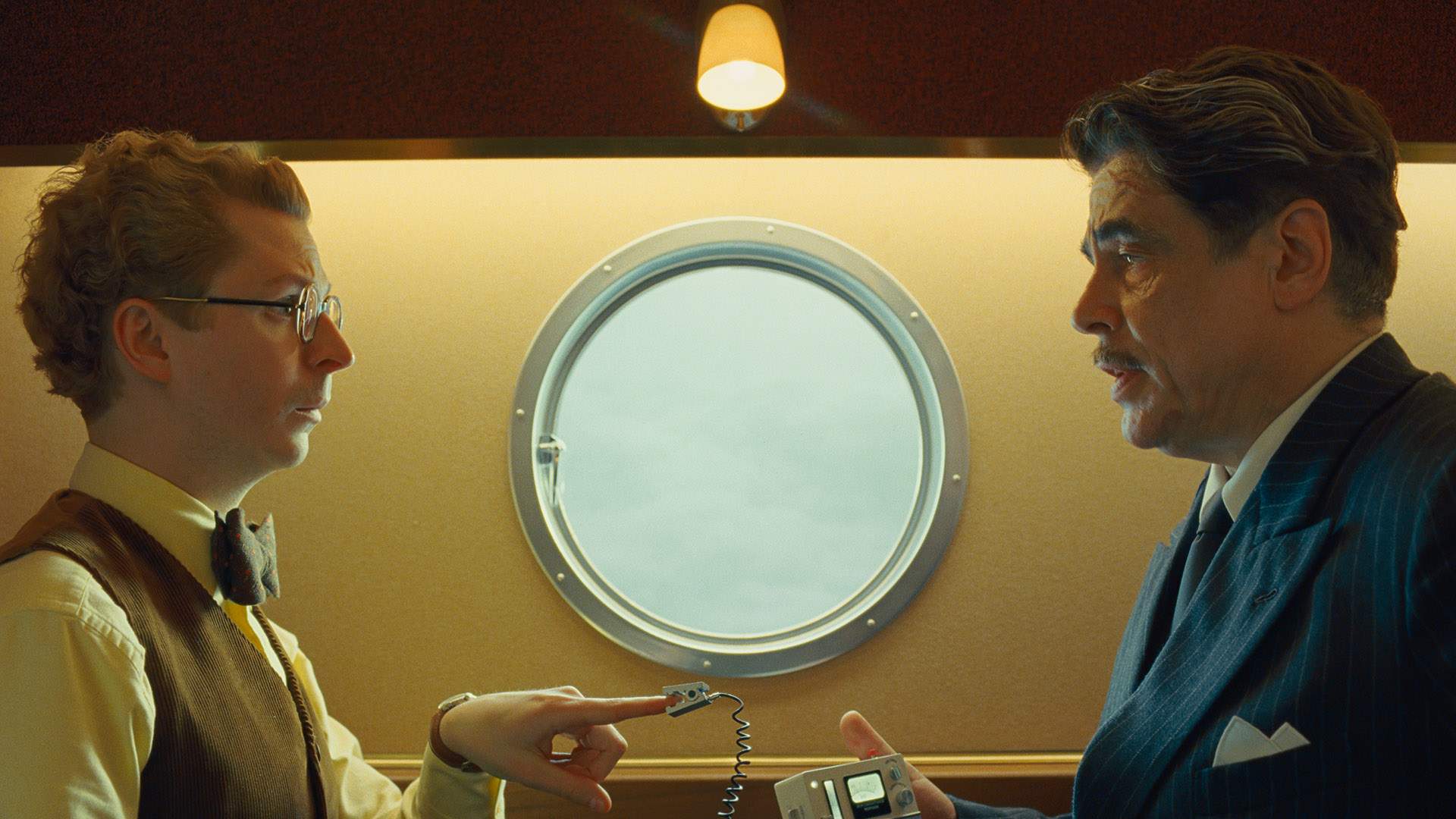When Wes Anderson Welcomes You Into a Cinematic World Like No Other: Benicio del Toro and Michael Cera Chat 'The Phoenician Scheme'
"One thing that we tried to keep in mind was 'don't try to be funny'," del Toro told us about taking the lead in Wes Anderson's latest feature. "Don't try to make the laugh happen. Let the laughs follow."
There's no official Wes Anderson Cinematic Universe. That label isn't bandied across his trailers and posters to describe connections between his movies, storylines don't continue from one film to the next and characters from past flicks aren't popping up in the writer/director's new works. Fan theories can speculate otherwise however they like; however, rather than any overarching narrative tidbits, it's the inimitable auteur's distinctive style, recurrent themes and familiar troupe of actors that connect Anderson's movies — delightfully so 13 full-length titles into his resume (if you count 2023 shorts The Wonderful Story of Henry Sugar, The Swan, The Rat Catcher and Poison as one charming anthology).
Still, being a part of one of the Bottle Rocket, Rushmore, The Grand Budapest Hotel and Isle of Dogs' helmer's features is akin to entering a specific realm for his cast. Starring in an Anderson picture means working with a filmmaker with a precise aesthetic and meticulous direction, the results of which then get splashed across the screen for audiences to cherish in elaborate detail. In The Phoenician Scheme, Benicio del Toro (Reptile) and Michael Cera (Sacramento) are two such players. They're each either relative or literal newcomers to Anderson's world — del Toro first collaborated with him on The French Dispatch, while Cera was slated to be in Asteroid City but the birth of his son understandably took precedence — and they're loving it.
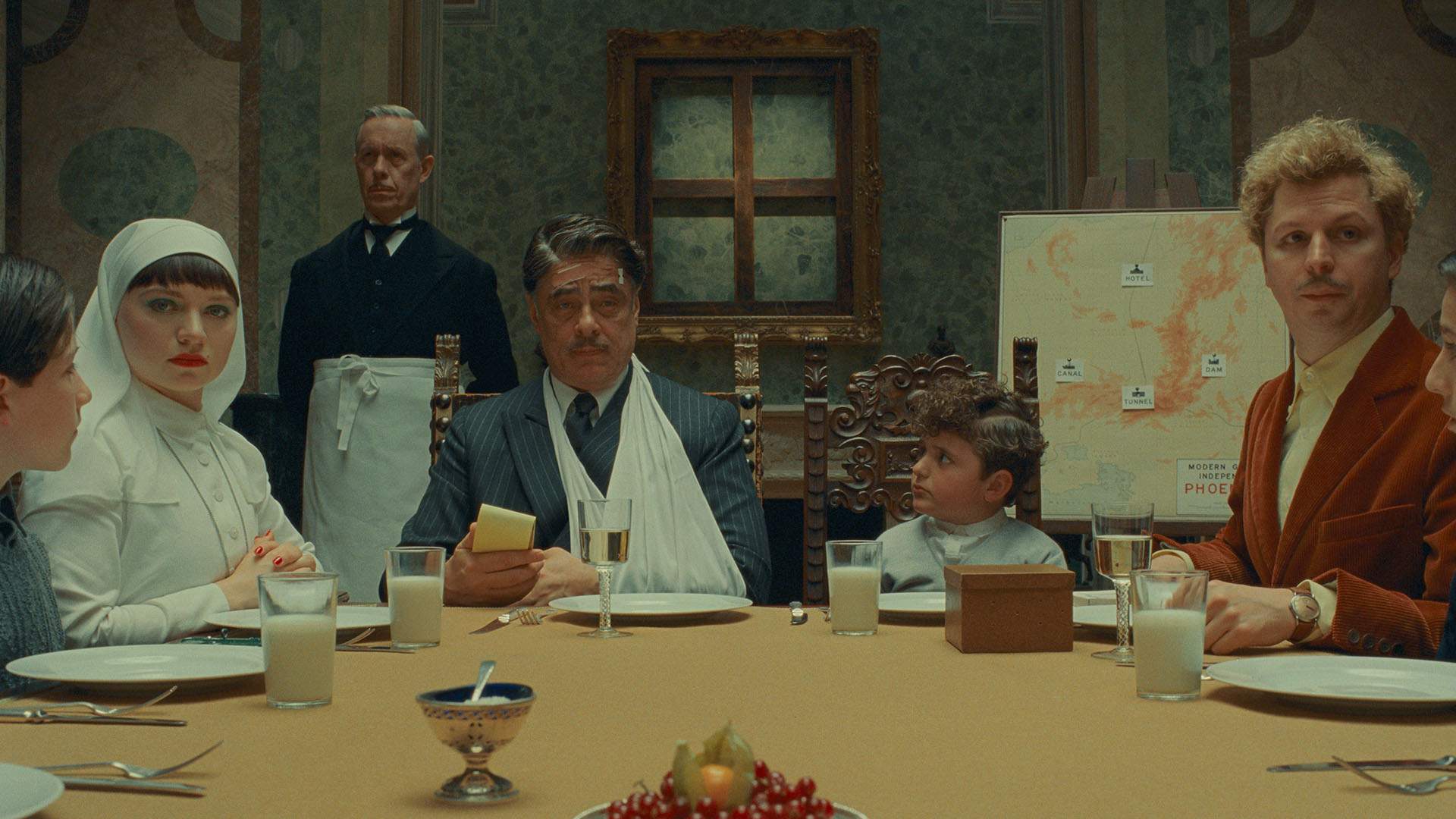
Nothing is accidental in the making of a Wes Anderson film. Nothing is anything but intricately planned and orchestrated, in fact. Accordingly, it should come as zero surprise that del Toro and Cera weren't merely cast in the 50s-set The Phoenician Scheme — they're the only actors that Anderson had in mind for the roles of European business magnate Anatole 'Zsa-zsa' Korda and Norwegian tutor/entomologist Bjorn, respectively. Chatting with Concrete Playground, they both use the same word to describe that situation. "It's a hell of a gift," del Toro advises with a smile. "It was really a treat and a gift," says Cera.
Zsa-zsa is The Phoenician Scheme's protagonist. The plan that gives the flick its name — as stored in shoeboxes, and involving a range of business partners spread far and wide (as portrayed by Here's Tom Hanks, The Studio's Bryan Cranston, Relay's Riz Ahmed, A Private Life's Mathieu Almaric, The Last of Us' Jeffrey Wright and Fly Me to the Moon's Scarlett Johansson) — is all his. Brought to life by one of Oscar-winner del Toro's greatest performances, he's also wealthy, charismatic, cut-throat in his professional endeavours and, after surviving his sixth plane crash, keen to get reacquainted with Liesl (Mia Threapleton, The Buccaneers), the nun in training that's also his estranged daughter and preferred heir.
As for Bjorn, he's enlisted to teach Zsa-zsa about insects, but finds himself acting more as a personal assistant while getting close to Liesl — who is expectedly wary about her father and his endeavours — as they jet around attempting to lock in The Korda Land and Sea Phoenician Infrastructure Scheme. Cera is stellar, too, as well as a seamless fit into Anderson's repertory cast; his work here ranks up there with Arrested Development's George Michael Bluth, Scott Pilgrim vs. The World's eponymous figure, Twin Peaks' Wally Brando and Barbie's Allan among his most-memorable characters.
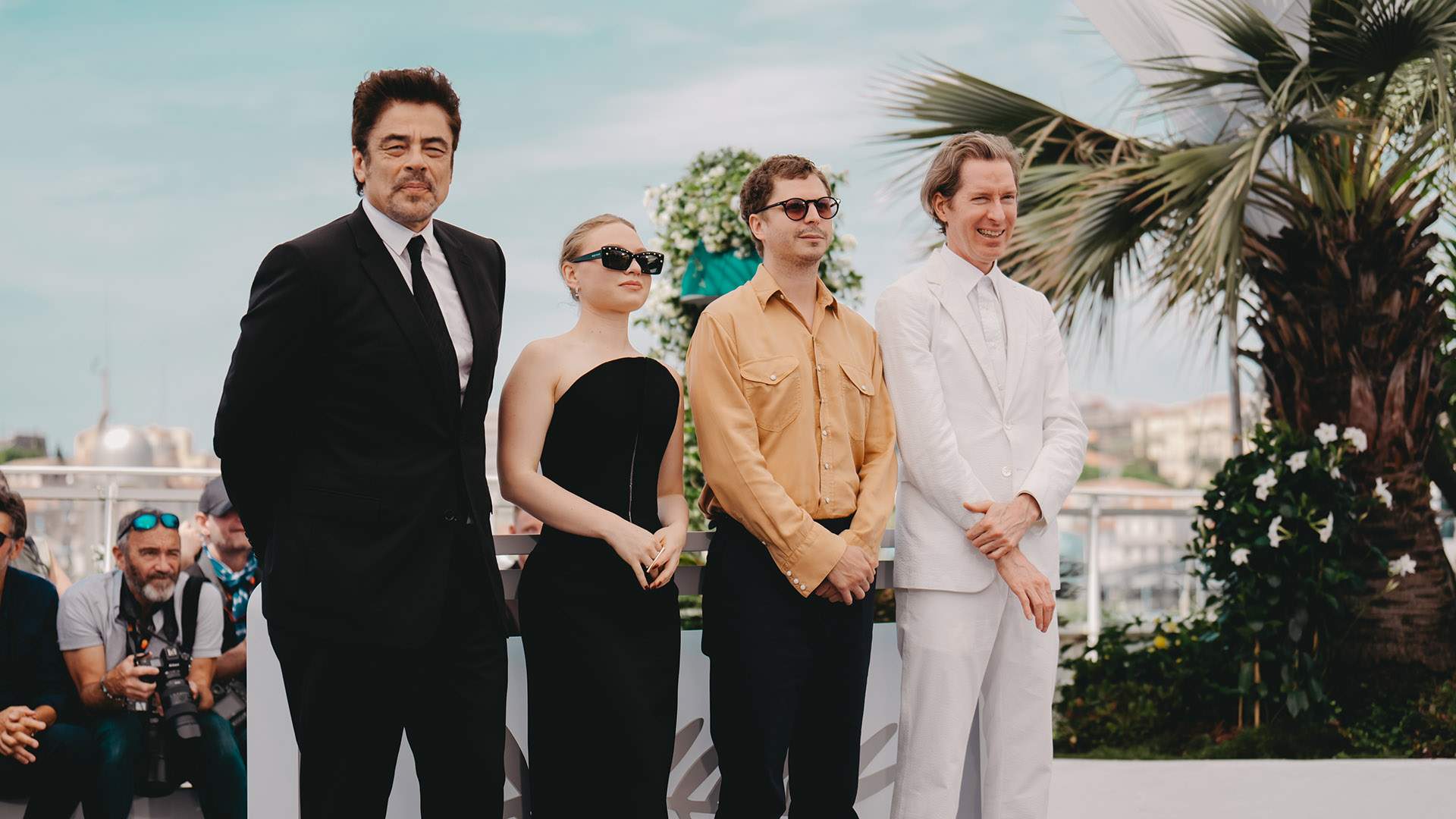
Giulia Parmigiani
For co-stars, del Toro, Cera, Threapleton and the fellow talents listed above also have everyone from Richard Ayoade (Dream Productions), Benedict Cumberbatch (Eric), Rupert Friend (Companion) and Hope Davis (Succession) to Willem Dafoe (Nosferatu), Stephen Park (Death of a Unicorn), Charlotte Gainsbourg (Étoile) and Bill Murray (Ghostbusters: Frozen Empire) for company. And for plot specifics, the ensemble has "disrupting, obstructing, impeding" bureaucrats, the price of bashable rivets, lie detectors, suspicious uncles, locomotives, basketball shots, terrorists, freighters, marriages, grand hotels and heaven to navigate. They're stepping into a redemption story, and also a complex family dynamic with deep emotional resonance. This group is in another Anderson gem, then.
Ask del Toro how he approaches plying his skills for Anderson, a filmmaker who is giving him rare comic parts — so much so that the actor was astonished the very first time that the director called — and he speaks about his commitment to telling the truth no matter the role. Ask Cera about conveying complicated bonds for the helmer, and also about the path that's brought him to Bjorn after more than a quarter of a century of acting, and he's all about the people around him. For both, trust and faith in Anderson are pivotal to them giving their all, and the results are on the screen. "You trust him and you try to be as honest as you can, even when you're lying," del Toro notes.

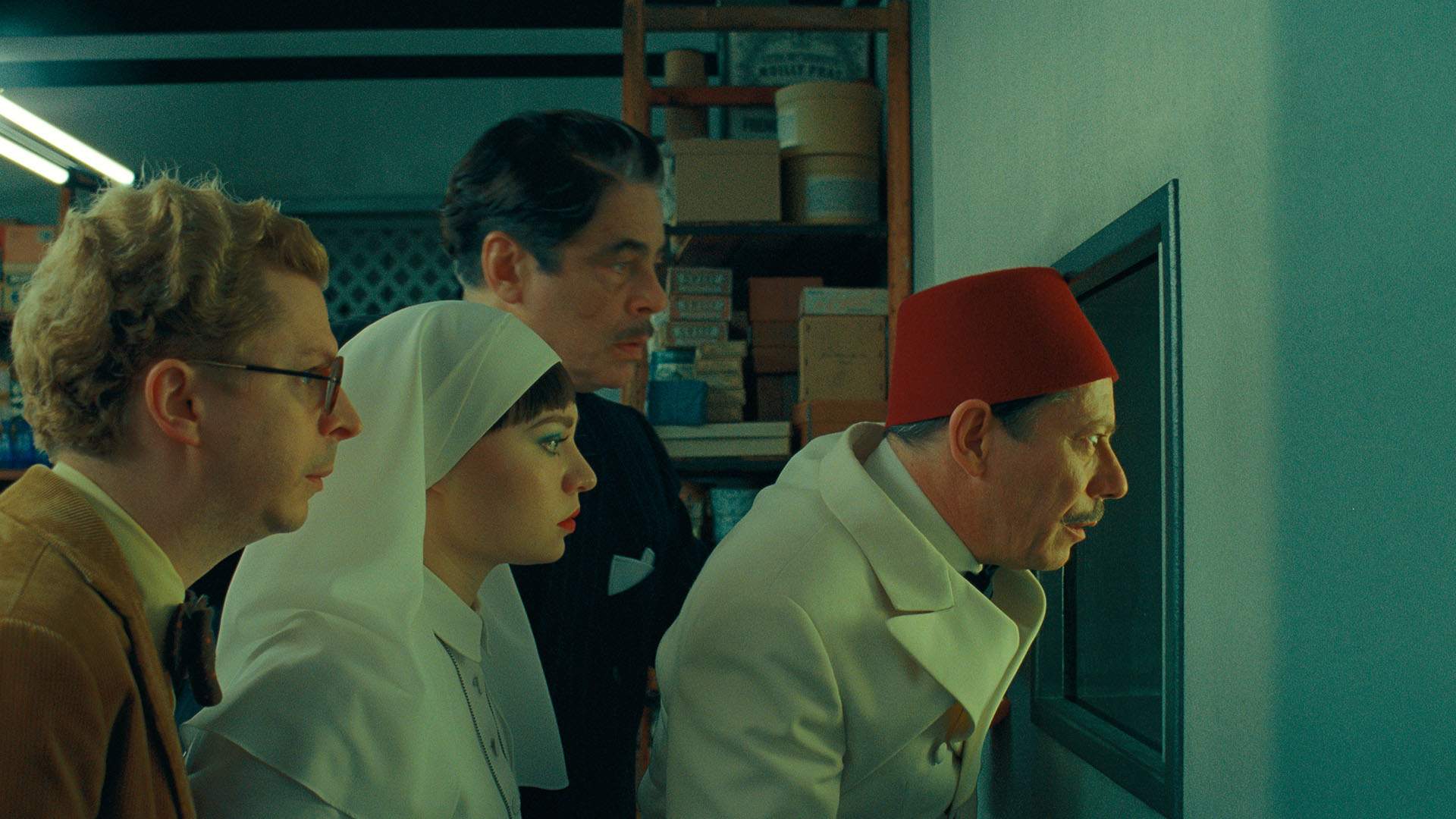
On Digging Into a Wes Anderson-Penned Redemption Story That's Characteristically Both Comic and Has Emotional Depth
Benicio: "I think I do what I do in every movie — I try to tell the truth. Wes and Roman Coppola, together they wrote this incredible script. You just draw from it.
You know, I'm not known to do comedy — and one thing that we tried to keep in mind was 'don't try to be funny'. If the laughs come, good. If not, it's good. Don't try to make the laugh happen. Let the laughs follow.
So try to tell the truth. And for me, it's just like what I do in other movies. I mean, this time I have to do it verbally, and there's a lot of dialogue. So for that, you just have to get ready and practice that dialogue.
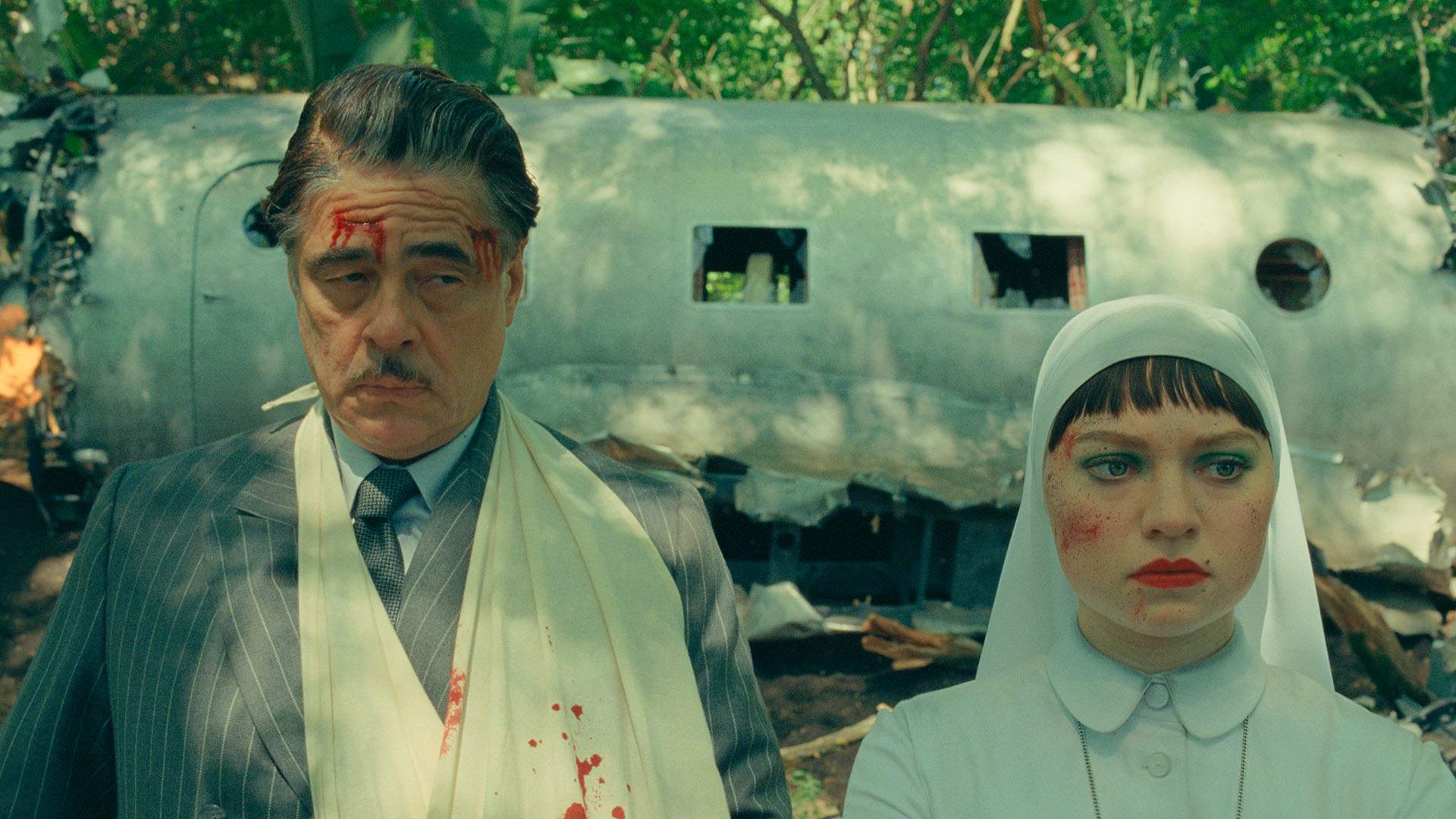
But the bottom line for me is basically what you said — it's the depth of this arc of this character. But also those dream sequences or heaven sequences, that is his subconscious also talking. It just added for the actor to know what was the arc about. It helped.
It was like having your psychiatrist explaining the character as well. It's like having the psychiatrist explaining who the character is. Those dreams fed a lot of information to me of where we were on this story — also where was his emotional arc of that particular moment in the story."
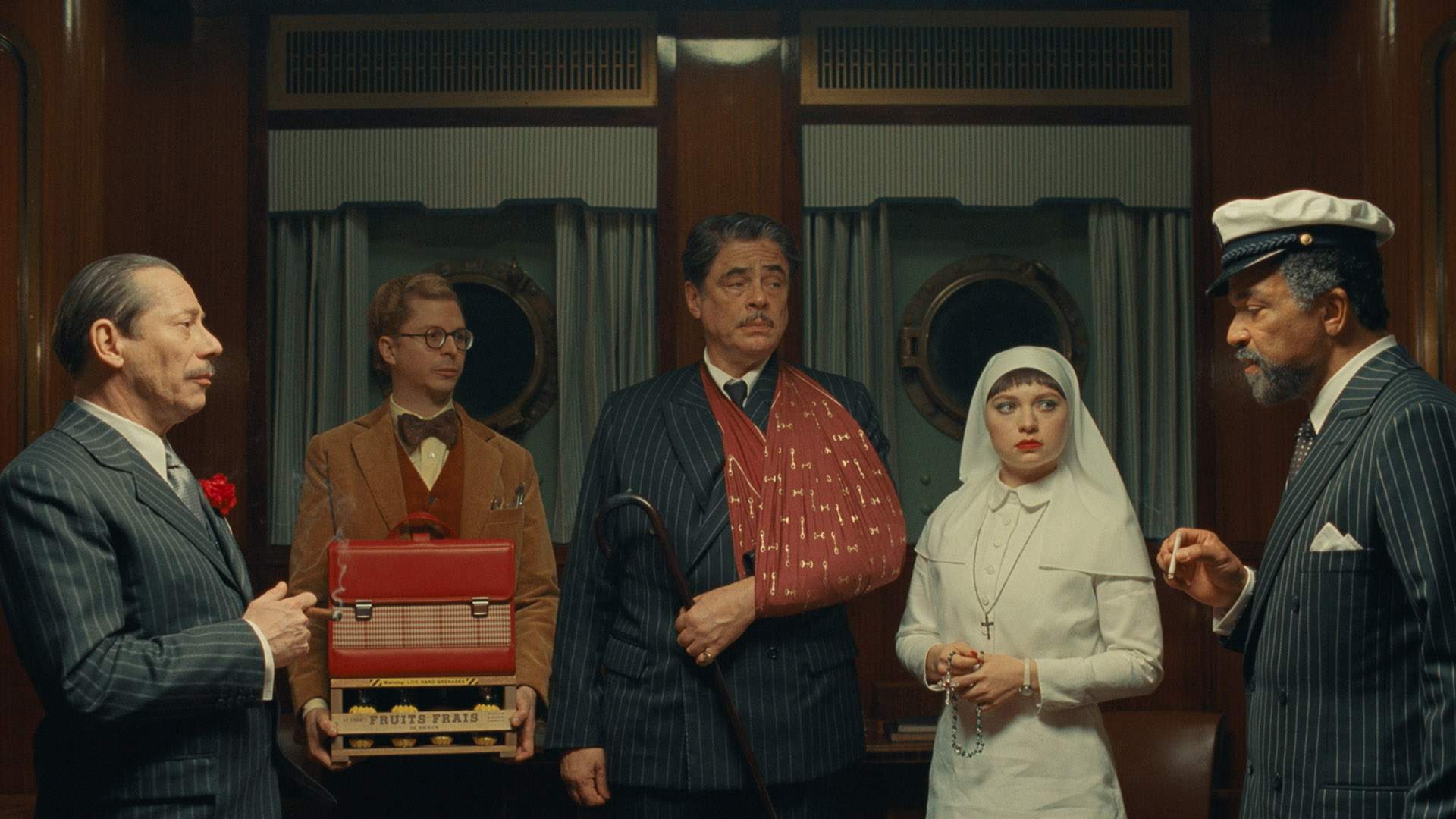
Michael: "I think the material and the writing takes care of a great deal of that for you. If it's able to get you invested in the story — which, it's just such strong writing — you feel it when you read the script.
You feel and you know completely — you know where the feeling is going to come from and how you know it needs to be rendered. But even so, I found the movie much more moving in the end than I even expected, even after having shot it. I find it to be very moving."

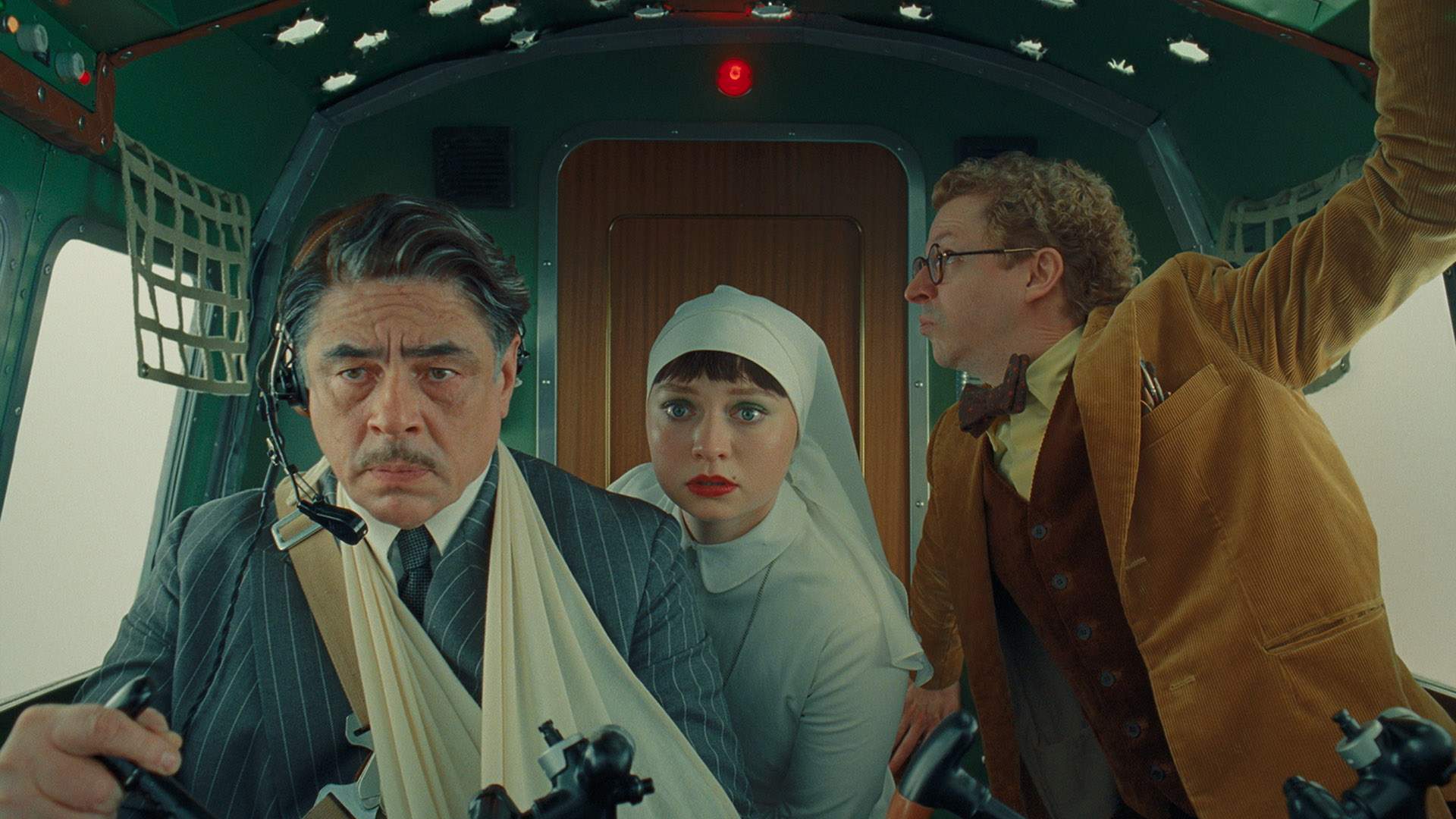
On How del Toro, Cera and Mia Threapleton Worked Together to Convey Their Characters' Deepening Bond Across the Film
Michael: "We did have a little bit of a rehearsal period, fortunately, with the three of us and with Wes. And we just really worked, the four of us privately, for a couple of weeks — like two weeks or so.
And it's a great thing to be able to do. It makes you get ahead of things a little bit. It allows you to come up with some observations and ideas that that later can feed into the work. And it also, but most importantly I think, just creates a strong sense of a team and comfort and trust with each other. And that carries into the work, I think.
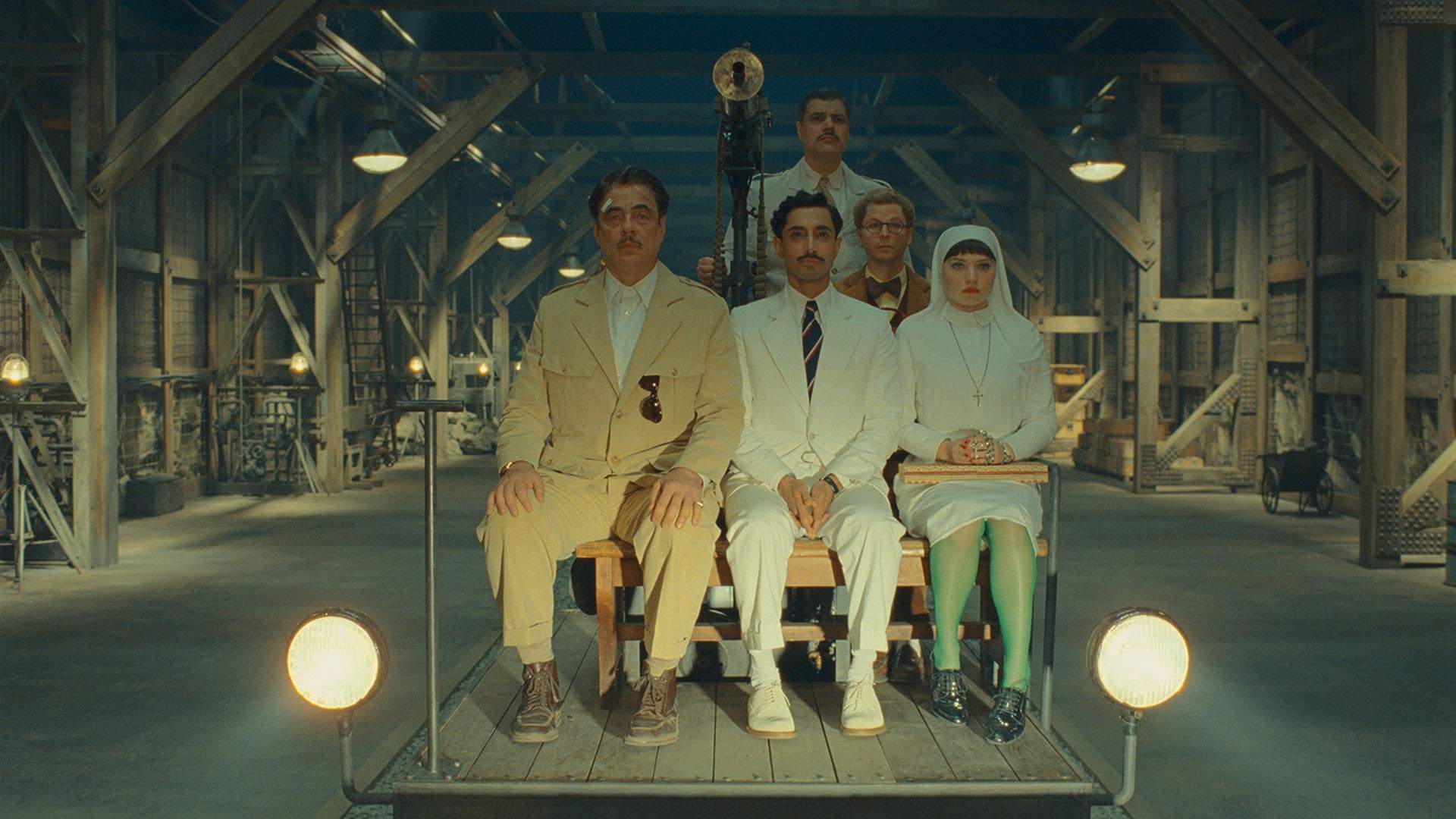
But we discovered, also I think, in reading it, discovered the dynamics and the emotions that these characters feel toward each other. And what it feels like for to be betrayed, when there are betrayals that happen.
It was nice to get ahead of all of that and find the specific way in, and what was specific about it — because I love the way it's played. Things are salvaged even though there's a major betrayal. And there's an emotional bond that helps them all pull through that even, which is really nice. A really nice turn, I think."

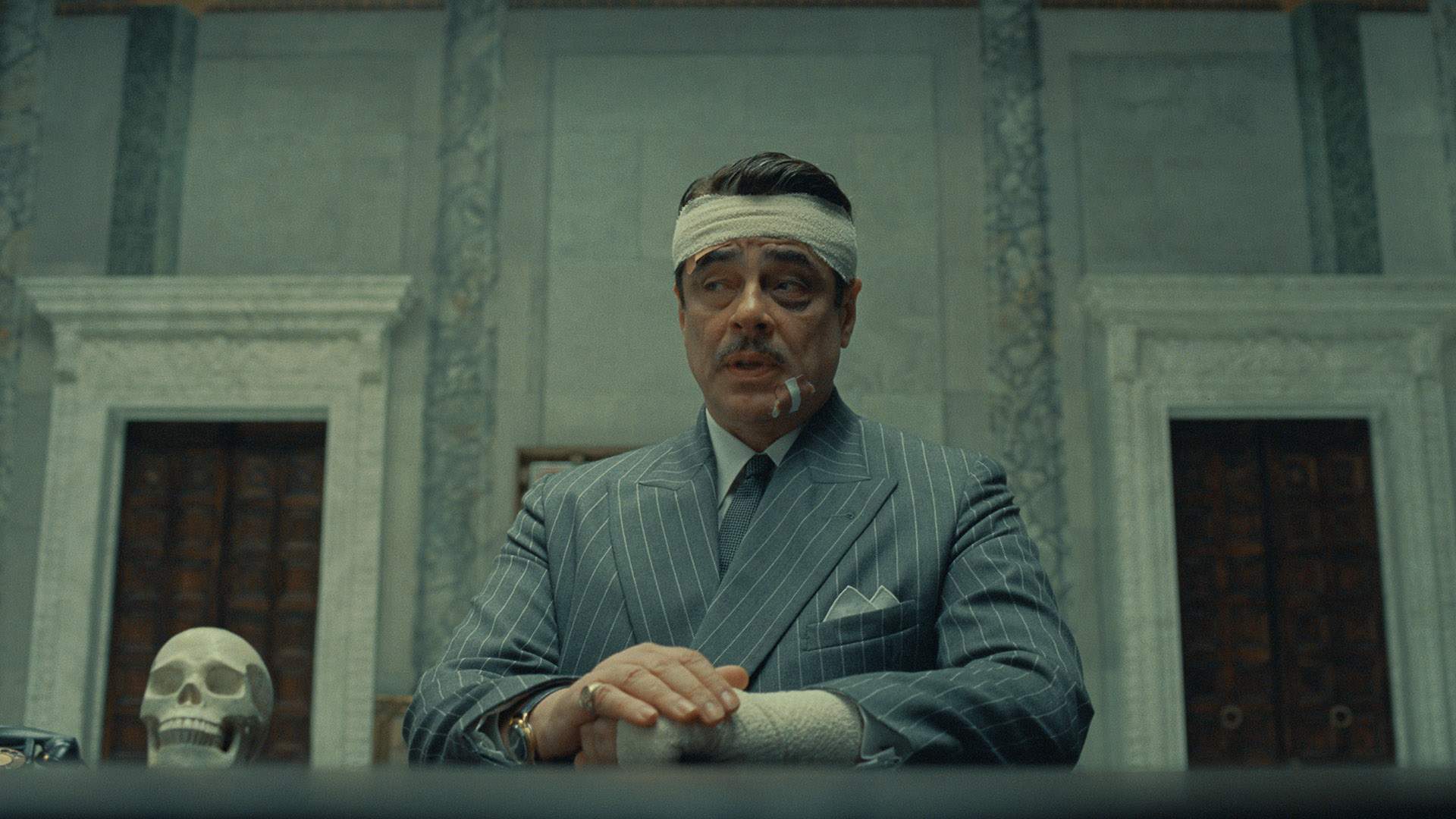
On the Significance of Anderson Writing Specific Parts for Del Toro and Cera
Benicio: "Well, it's a hell of a gift.
I think that we never talked about anything. 'Hey, did you write this for me? Am I your second choice?'. I never really questioned that.
He called me up. He sent me the first 20 pages. I have to go back and explain to you that when I got The French Dispatch and he first called me, I was super elated. It was hard to believe that Wes Anderson was calling me to be in one of his films, because most of the movies I do, even though they're fiction, they tilt towards documentaries. Wes movies, they're fiction but they tilt more to theatrics — to the theatre, let's put it that way.
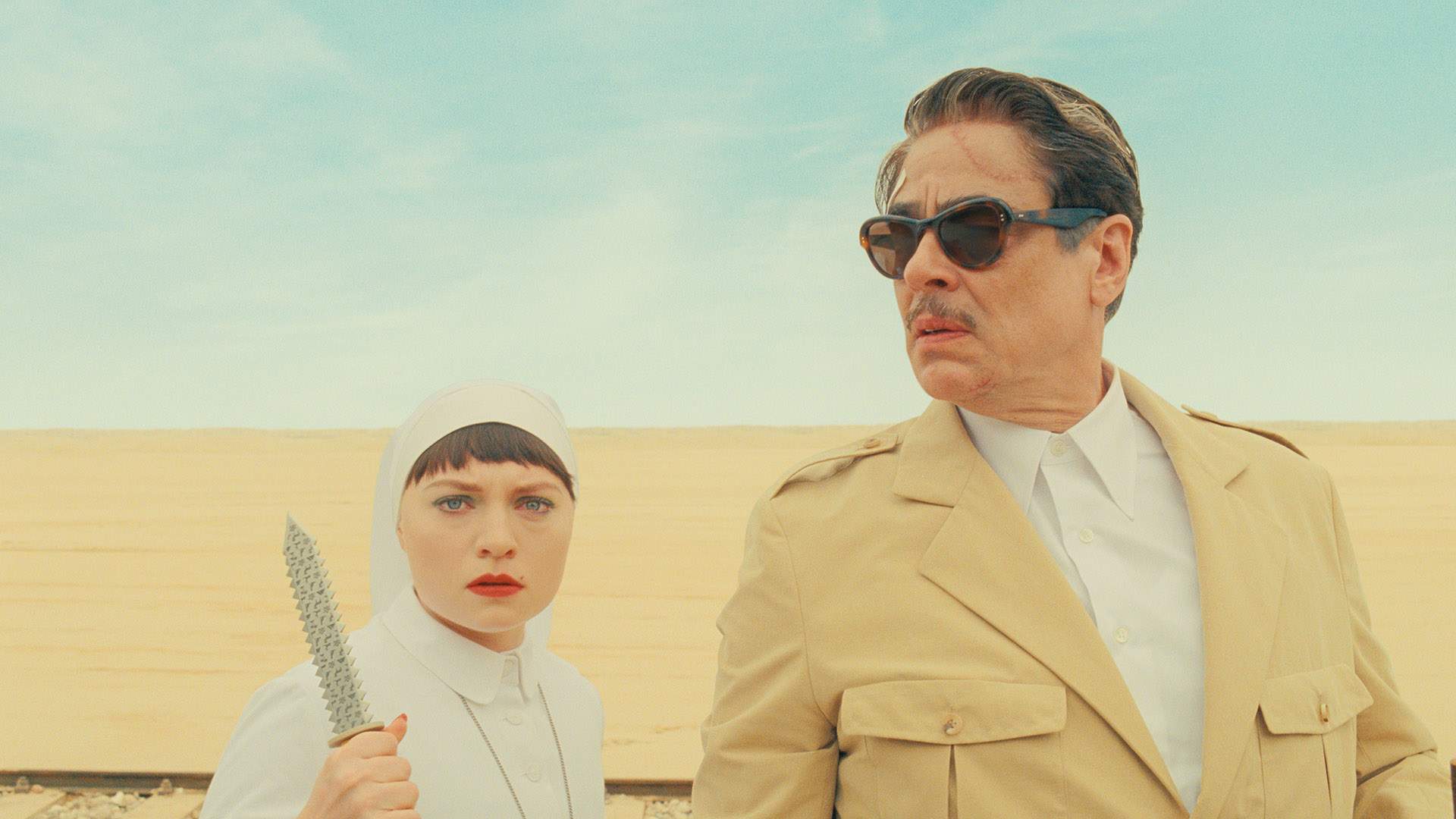
When he called me up the first time, I was a little bit like 'wow, is he, is he really?'. I immediately thought 'wow, he's thinking outside the box, he's going against stereotypes'. Because there's many actors that do comedy better than me, and he could have gone to those actors. But for some reason, he pulled me into that world, his world. And I was really elated by it.
When I read the part of The French Dispatch, it was like it was so good, and then I realised that it came to an end and another story happened and that was it — and it was like 'wump, wump, wump'. I was little bit like 'oh, wow, I could really get into this character, the painter Moses'.
And so then that happened. I did the film. I had a blast working with him. When you work with Wes, you have to let the kid in you, you've got to let them out, the imagination. You have to play.
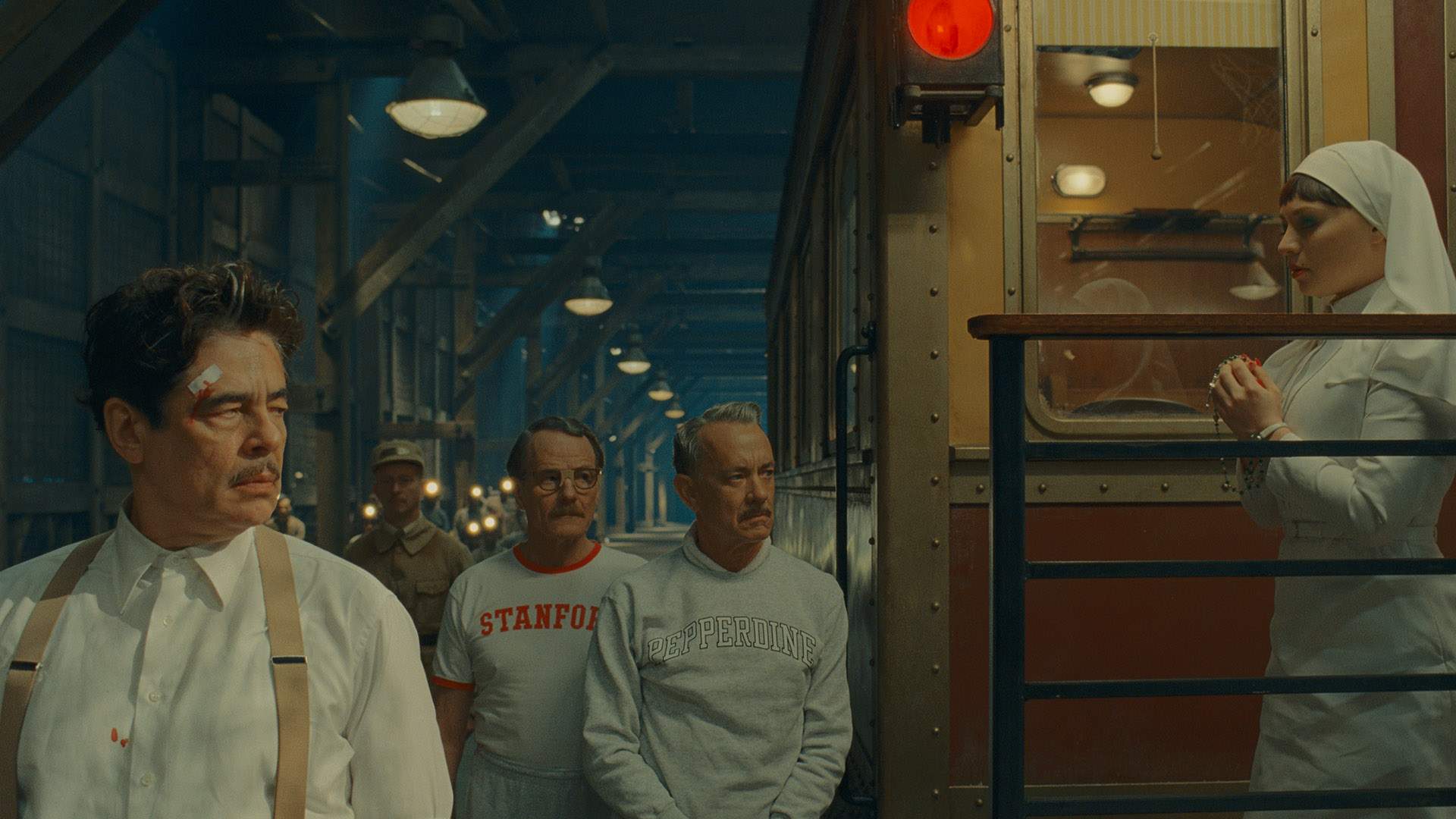
It's a lot of fun. It reminded me — I was trained in the theatre, so it was kind of like back to the future, in a way. It was like I had travelled back in time to my beginnings, studying with Stella Adler and being on the theatre.
And then come to this, when he sent the first 20 pages, I was like 'oh wow, this is amazing'. But I thought that might be it. And then he sent the next 20 pages and I'm still in the movie. And then the next 20 pages — and then I'm going 'oh my god, now this is going to be hard work'.
So it was kind of like one of those, and I was really excited — and it's a gift from Wes. But at the same time, you had to really put on, strap on your boots and get to work, because there was a lot of work to do."
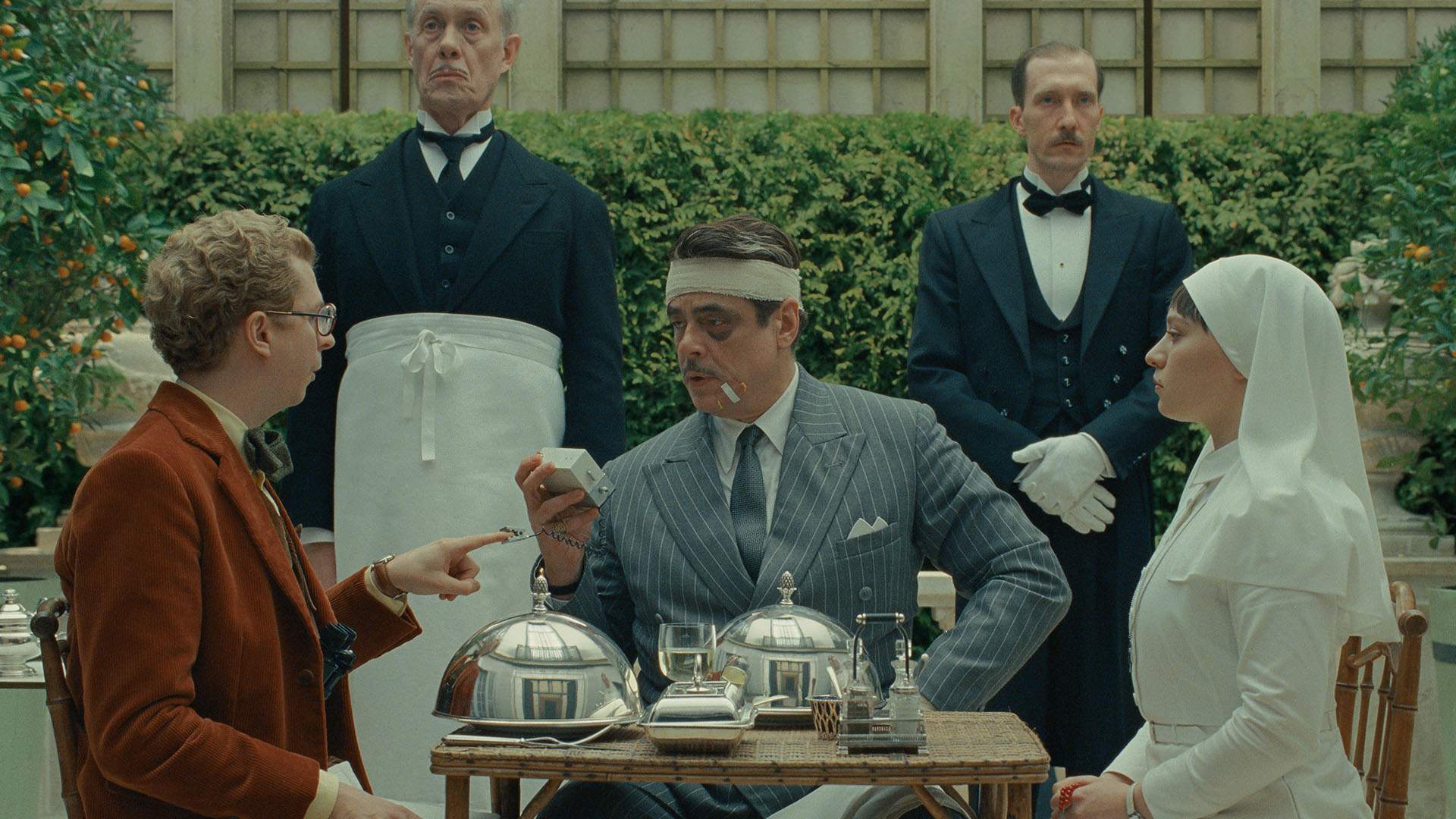
Michael: "I didn't know that really, to be honest. So I'm not sure — like I don't know exactly what his process was with that or when I came into his mind for it. But obviously just so happy to be considered and invited.
Wes had offered me one role once before, in Asteroid City, and I ended up not being able to do it because of the birth of my son interfering with the dates. So I was so disappointed. I mean, obviously it was the most-important kind of life event for me. So it was all good, but it was just horrible timing.
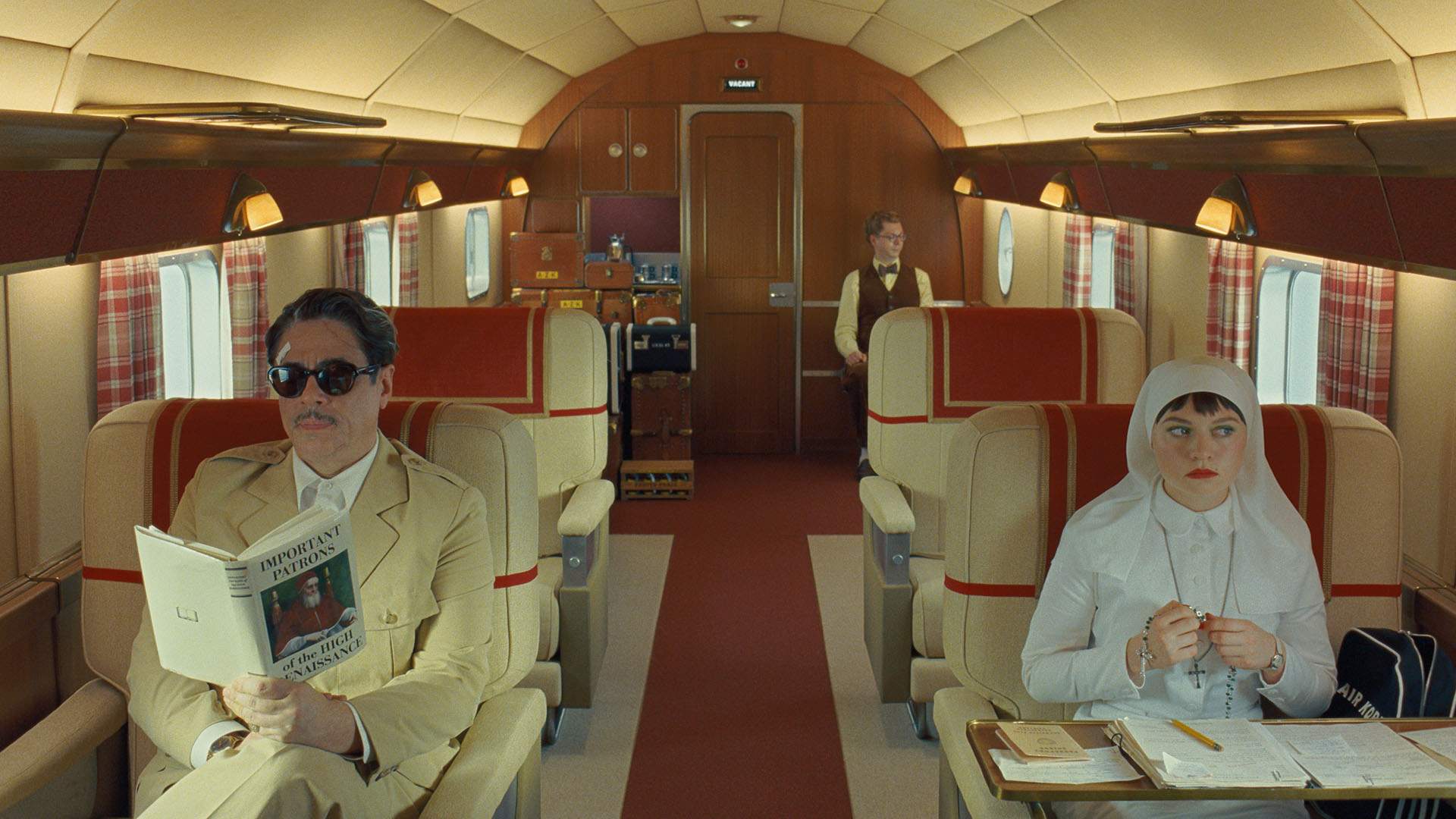
I was like 'oh no, I finally got offered by Wes to come along and be a part of his one of his productions and I can't go'. It was heartbreaking. But this more than redeemed it.
So I was just happy that he was still thinking of me, and then so delighted to read it and to discover this character — and so caught, really, by surprise by how involved of a role it was too in the whole story, and in the whole play of everything. I didn't expect to be given such an opportunity by him.
So it was really a treat and a gift."

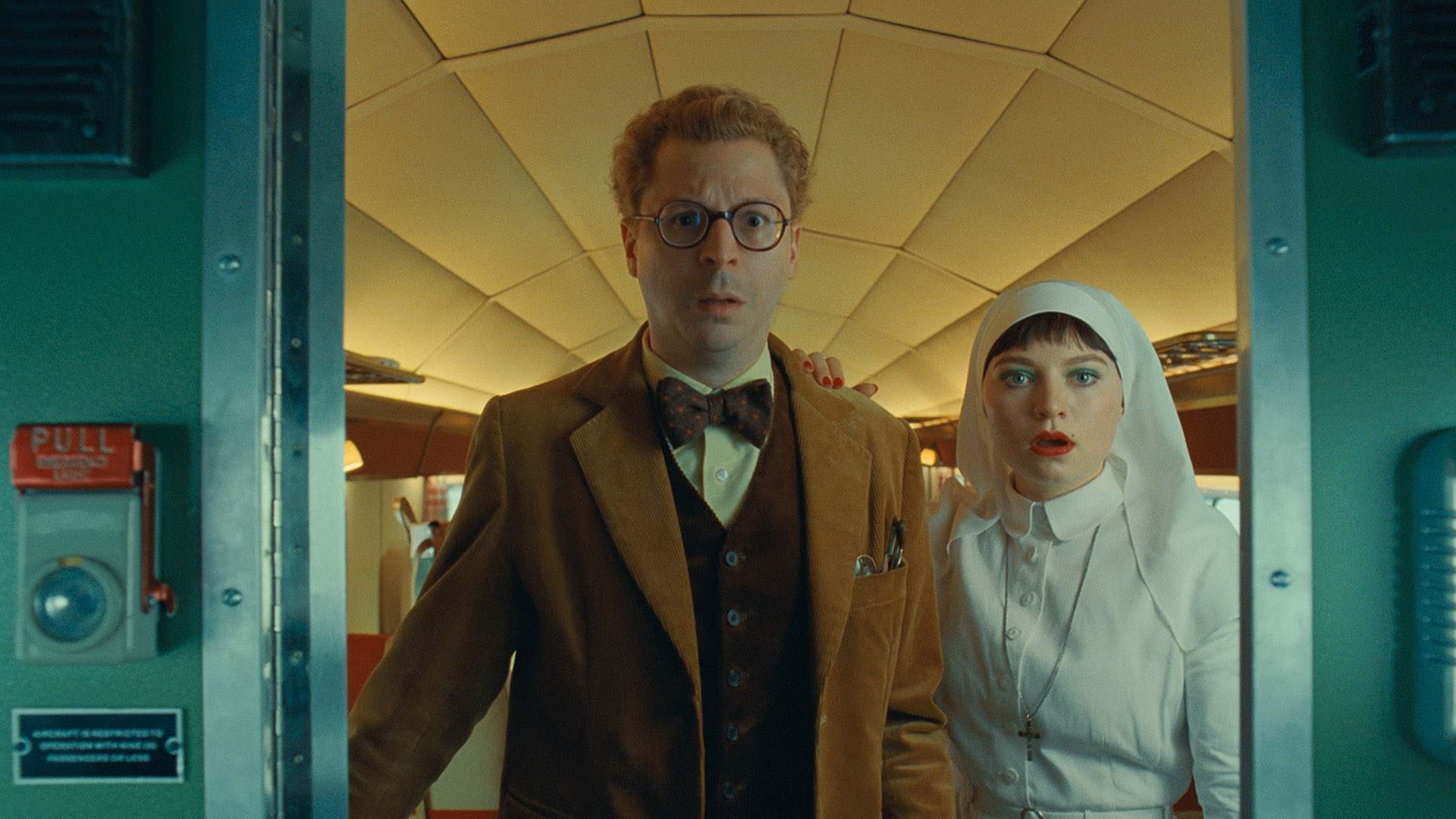
On Cera's Knack for Taking on Distinctive, Specific Characters That Aren't Going to Be Mistaken for Any Others, Including in Arrested Development and Twin Peaks
Michael: "It's the greatest thing when you get a piece that's exciting to read and an amazing opportunity as an actor. I remember reading the script for Arrested Development when I was like 14 or 13, and really, it was very clear how special it was.
I don't know — I think there are things that you just gravitate toward and you just want in. There are a lot of things that I have felt that about that I didn't have a chance to work on, too, but you're just like 'oh, I need this. I want this. I get this. I love this world. I love the people making it'.
So when you are lucky enough to get onto the ones that you feel that way about, it's the greatest."

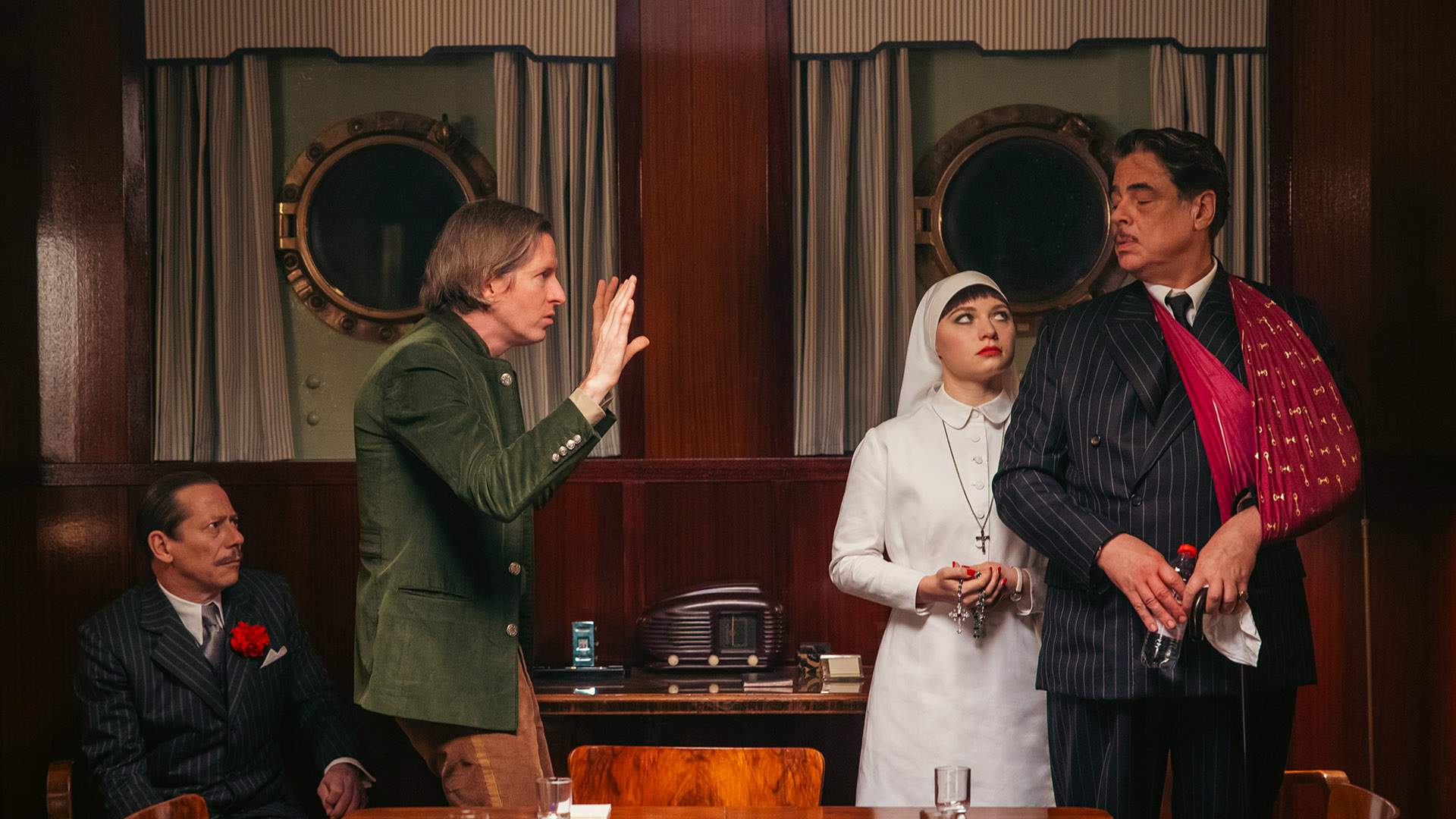
Roger Do Minh/TPS Productions/Focus Features © 2025 All Rights Reserved.
On How Working with a Filmmaker with Such a Precise Visual Style Influences the Way an Actor Approaches a Role
Benicio: "Well, you know his movies are handmade. There's nothing there that is — let's say CGI, very little. You might have to use something but very little is CGI. Everything is built. Everything is put together. Everything is really — you can touch it.
So my approach to it was the same way I approach any movie: is just try to tell the truth unless, and trust Wes that if I do what I do, he will take it to the finish line. He will do his thing and take it to the finish line. And, like any actor, you try to tell the truth — even when you lie.
So that's what you do in a Wes Anderson movie as that's an actor. You trust him and you try to be as honest as you can, even when you're lying. That's what I did. Hey, there might be other ways, but everybody's different."
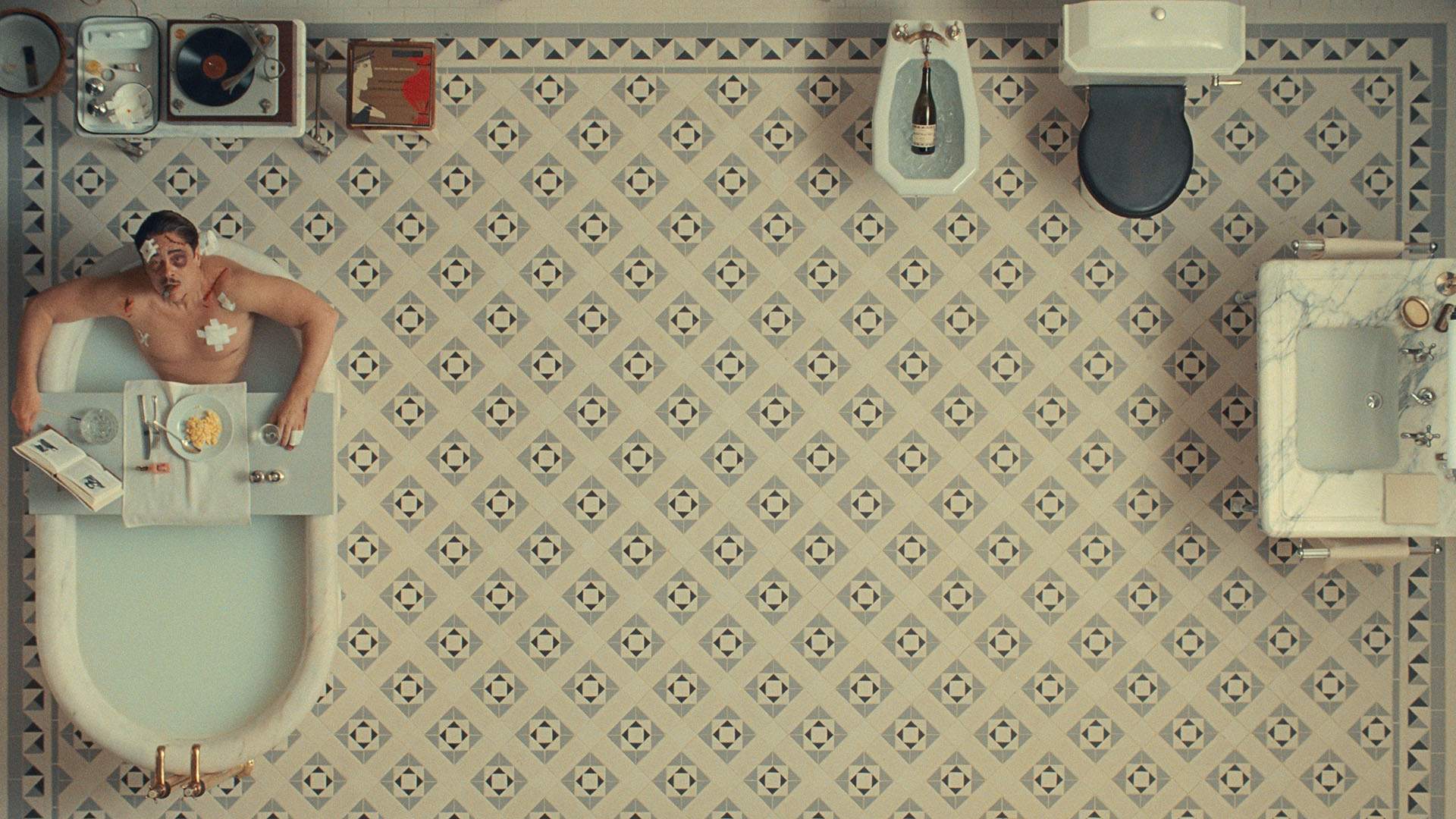
Michael: "Well, you have a lot of faith in him. You have a lot of trust in Wes, because you know that he's across every inch of the movie and he's not going to let something get through that breaks the spell or destroys the nuance of what he's creating.
So you just feel you're in incredibly good hands and he's going to make you shine — and make you look better than what you did, even.
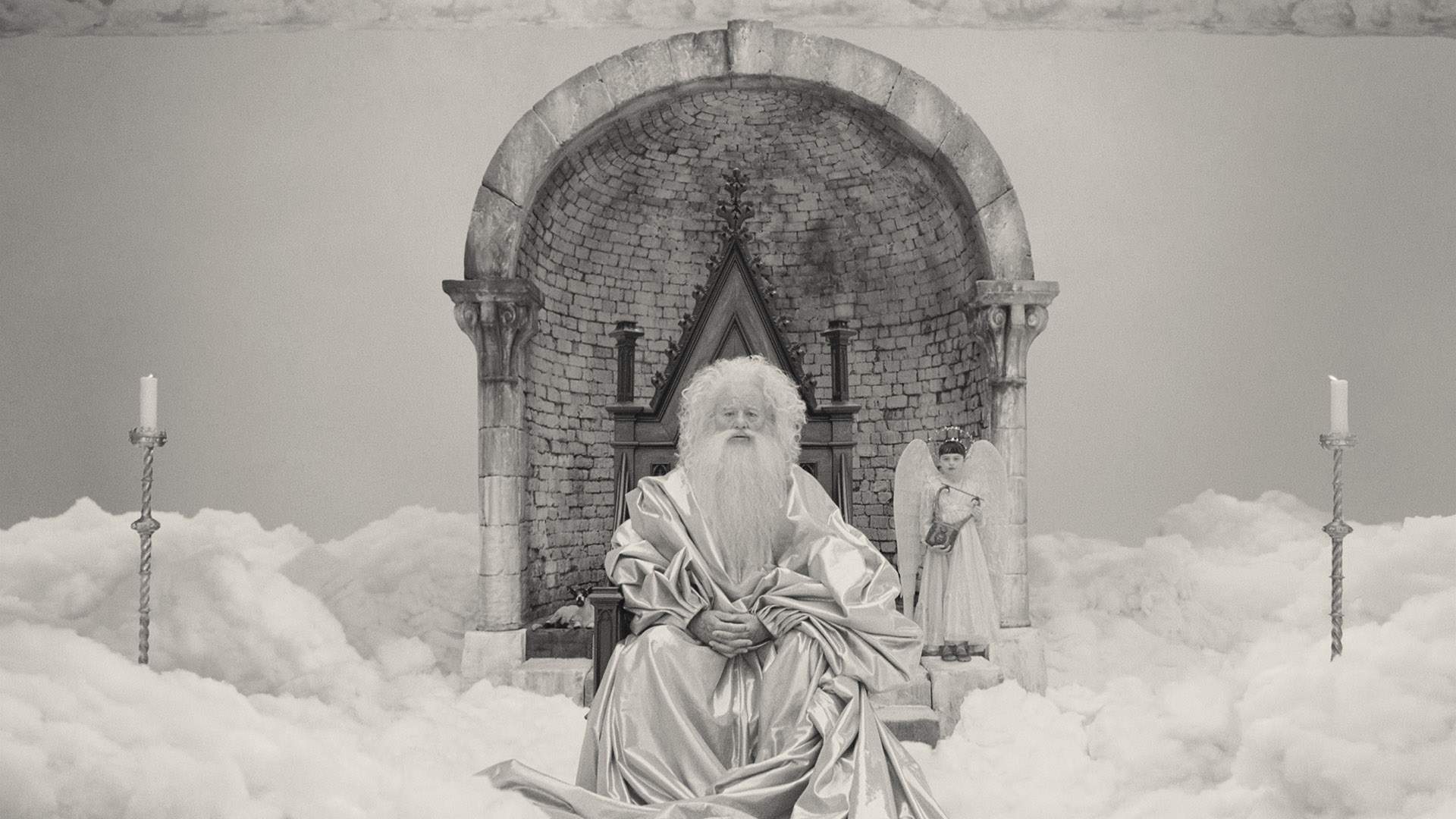
So working with someone on that level, it makes you feel very confident. And then you can you can try things and you can work with confidence.
That feeling is not always there, and sometimes you have the opposite feeling, and it's really hard to really put yourself out there as an actor when you have that, when you have doubts."

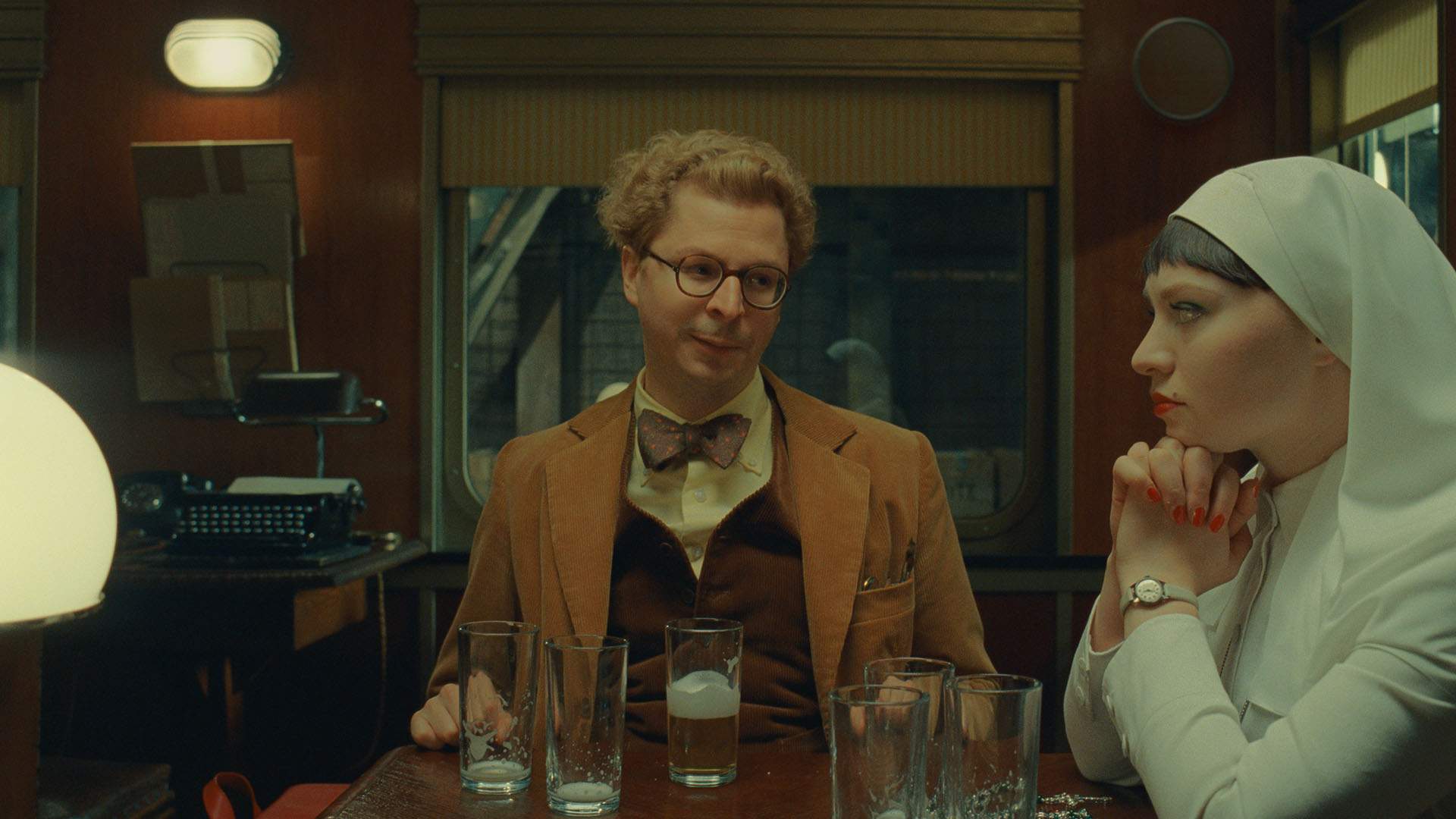
On What Cera Makes of His Journey as an Actor Over More Than a Quarter of a Century, Leading Him to The Phoenician Scheme
Michael: "I feel really lucky to be doing this for a living and doing what I was attracted to from that age. When I was a kid, it wasn't like a career. It was just something I loved. And then it turned into something that was kind of a job, but I loved that, too.
It's an interesting life. I've had a very positive experience of coming up as a child actor and turning into an adult person who's acting. There are obviously the famously unfortunate versions of that. But for me, I was always just around great people.
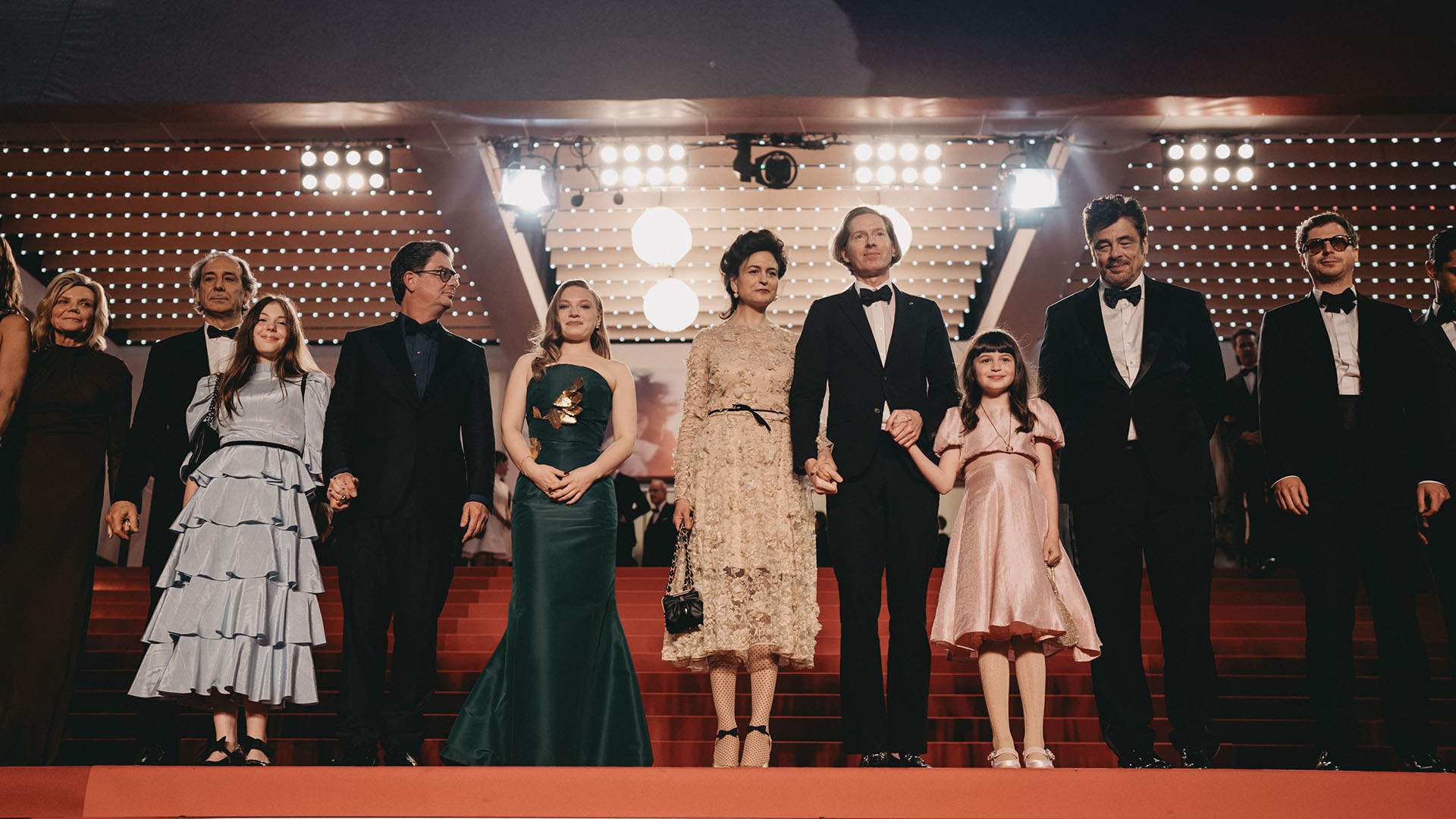
Giulia Parmigiani
It was exciting to be nine years old and having colleagues that were grown people that you admire and that took care of me and showed me how to do it. Even first assistant directors and things, when I didn't even know what I was doing. I didn't know where I was supposed to go, what I was supposed to, what I was supposed to say — and people helped me.
So I feel very lucky. I've had a very good road to be where I am now. And it's really nothing but good luck that made it that way. I just have had really good people around me."

The Phoenician Scheme opened in cinemas Down Under on Thursday, May 29, 2025.
Film stills: courtesy of Focus Features © 2025 All Rights Reserved.
